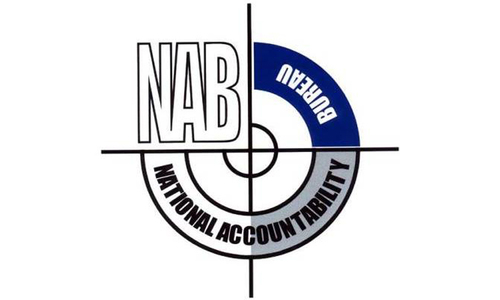ISLAMABAD: The Panamagate controversy has now spilled over into bar politics, with fissures between two schools of thought within the 23-member Pakistan Bar Council (PBC) — the supervisory body for lawyers in Pakistan — finally out in the open.
On Saturday, a majority of 13 members, led by Ahsan Bhoon — who is considered to be part of the ‘Asma Jahangir group’ — held a requisitioned session to virtually clip the authority of its vice chairman, Barrister Farogh Naseem — who is considered to be part of the ‘Hamid Khan group’. They appointed Kamran Murtaza as spokesperson and empowered him to present the council’s point of view, especially in the Panama leaks case.
The 217th meeting of the council decided to take a firm stand on the Panamagate issue, coming close to adopting a strongly-worded resolution after threadbare discussion on whether the Supreme Court had the jurisdiction to hear the Panamagate petitions.
Though the session was about to pass the resolution, it was deferred when a member pointed out that it was not advisable to adopt the resolution since the matter was not on the agenda for the day.
PBC sidelines Farogh Naseem; Kamran Murtaza made new spokesperson
Moreover, a resolution without solid legal rationale would serve no purpose, and would rather embarrass the highest forum of lawyers in the country.
The session resolved to call a proper meeting on Nov 26, after serving due notice to all members, to thoroughly discuss the scope and nature of the jurisdiction the Supreme Court has to deal with the Panamagate case.
Mr Bhoon, one of the vocal members of the council, said that before holding politicians to account for corruption in the form of investments in offshore companies, the judiciary should first consider taking action against one of its own members, whose name had also surfaced in the Panama Papers and Bahamas leaks.
On Sept 3, the same group had staged a coup against Farogh Naseem, who was elected vice chairman in elections held on Jan 25, 2016 — in what was seen as the re-emergence of the Hamid Khan group. The new majority group had also dissolved all the standing committees of the council.
Dr Naseem had bagged 12 votes against the 11 secured by his opponent, Syed Amjad Shah, a little known lawyer from Abbottabad fielded by the Asma Jahangir group.
The coup was challenged before the Islamabad High Court, which annulled the order related to the dissolution of standing committees on Sept 9, asking the PBC to settle the dispute on its own.
This decision was challenged before the Supreme Court and may be fixed before a three-judge bench in the near future.
Subsequently, the PBC called the meeting on Saturday and appointed Kamran Murtaza to act as the spokesperson for the council, though it decided that Dr Naseem would continue to serve as vice chairman, but only to maintain the dignity of the council.
But Dr Naseem told Dawn that PBC rules did not contain a provision for the appointment of a focal person, and termed Saturday’s meeting and its decisions “illegal”.
He also expressed his surprise over the fact that Attorney General Ashtar Ausaf, who in his capacity as PBC chairperson had adjourned a similar meeting on the grounds that the matter was sub judice, but had allowed the same meeting to be held again, despite knowing that the same reality still existed.
Whatever opinion was formed by the PBC was always considered the opinion of its vice chairman, therefore any decision to challenge the jurisdiction of the Supreme Court to hear the Panamagate case should be construed as the application of an individual lawyer and not that of the council, Dr Naseem said.
But soon after Saturday’s meeting, Kamran Murtaza told reporters that whatever Dr Naseem said from now on any issue would only be his personal opinion and not that of the council.
He also said that the council had decided to become a party to the review petition, moved by one of its members Raheel Kamran Sheikh, requesting Chief Justice Anwar Zaheer Jamali to reconsider and set aside his Sept 29 order of dismissing an appeal moved to seek the activation of the Supreme Judicial Council (SJC) and make public the number of references against superior court judges.
The session was also not happy with a recent conference in Lahore, also attended by Dr Naseem and former President Supreme Court Bar Association (SCBA) Ali Zafar, where Chief Justice Lahore High Court Mansoor Ali Shah was asked to resign.
Published in Dawn, November 6th, 2016













































